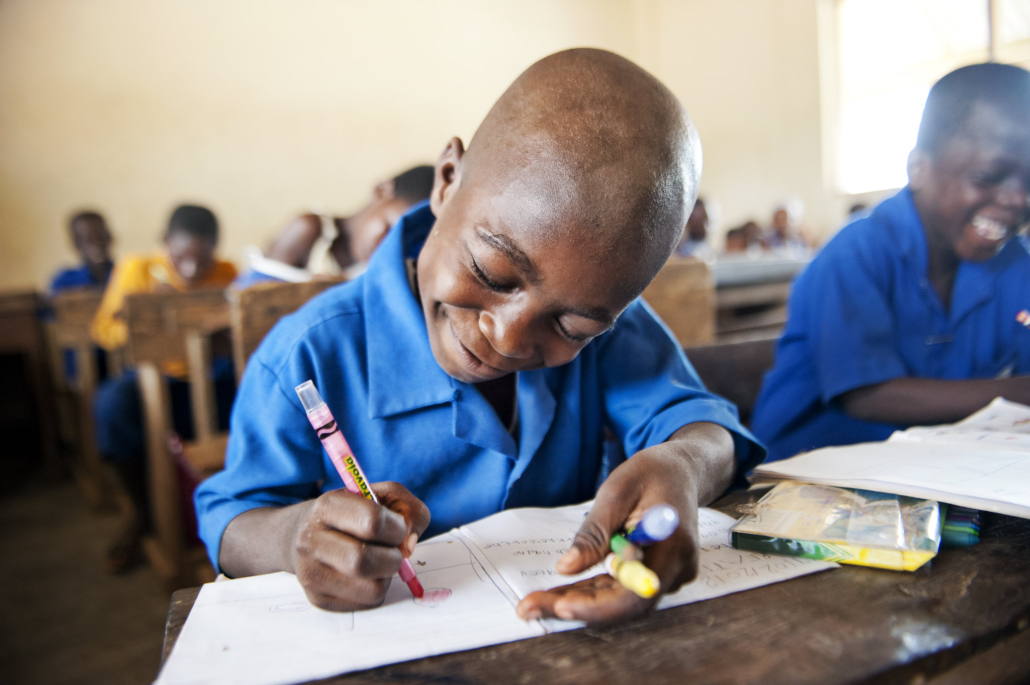Toy Drives and Libraries Enhance Child Development in Ghana

In the coastal West African nation of Ghana, poverty poses significant challenges for many children. This issue extends beyond monetary constraints; it frequently revolves around inadequate access to education, both within and beyond the classroom. However, recent initiatives have made strides in enhancing child development in Ghana, specifically by facilitating children’s access to essential learning materials.
Child Poverty in Ghana: Background
To comprehend the challenges facing child development in Ghana, it’s essential to delve into the multifaceted aspects of child poverty in the country. The National Development Planning Commission (NDPC) of Ghana’s 2019 report outlines nine dimensions that signify child poverty in the nation, and they include nutrition, health, child development, education, child protection, water, sanitation, housing, and information.
According to this study, a significant 73.4% of children in Ghana, aged 0 to 17, experience multidimensional poverty, characterized by deprivation in at least three dimensions.
The Struggle for Learning and Development
Poor quality of education is another roadblock to child development in Ghana. A 2022 report by the United Nations Educational, Scientific and Cultural Organization (UNESCO) shows that nearly 80% of Ghanaians do not achieve basic literacy and numeracy skills by the end of their primary school education.
There are also many instances of slow starts to child development in Ghana. The 2019 study by Ghana’s NDPC indicates that more than half of Ghanaian children aged 0-4 years (52.6%) lack access to books and toys, early childhood education and interactions with adults within the household.
Ghana Zetas Christmas Toy Drive
Charitable efforts have been undertaken to support child development in Ghana. In 2019, the Graduate Chapter of the Zeta Phi Beta Sorority initiated a Christmas toy drive in Oyarifa, Ghana, benefiting more than 50 children. The sorority members, along with contributions from the Phi Beta Sigma Fraternity and donors from the U.S., provided books, toys, clothing and monetary donations. This initiative was detailed in an article on the sorority’s website.
Toy Library Ghana
A more recent example illustrates how children in Ghana are gaining continuous access to learning materials. Toy Library Ghana, located in the capital city of Accra, functions as a literal toy library. With a collection of more than 200 books and 300 educational toys, this facility aims to provide children with hands-on learning resources.
Parents can borrow learning materials for their children through Toy Library Ghana. For a nominal fee of 25Ghc ($2.21) per month, the staff assists children in selecting a toy or book to rent each week. Furthermore, the library offers additional programs, including mobile clinics, supervised play dates and storytelling sessions, to enhance the learning experience.
Educational Toy Drive
In 2022, another toy drive for Ghanaian children occurred during the holiday season. A 2022 news article by the Carrollton Leader, a local publication in Dallas, Texas, highlights the work of a Ghanaian philanthropist living in Texas.
Philanthropist Hannarich Asiedu collected educational toys such as board games and puzzles as well as children’s clothing to donate to underprivileged children in her native Ghana. According to the Carrollton Leader, this drive was business as usual for Asiedu, who coordinates educational toy drives throughout the year.
Enhancing Child Development in Ghana
In a country where more than half of children aged 4 and younger lack the resources for intellectual development, these programs provide hope that quality child development in Ghana can become the rule, not the exception.
– Noel Teter
Photo: Flickr
